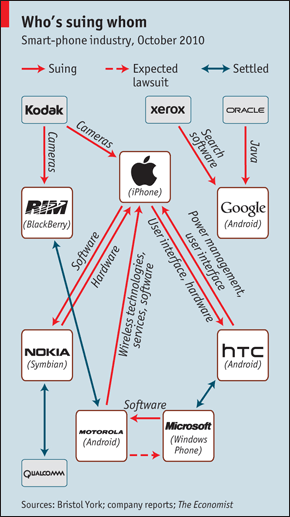Google unloading the Motorola handset business - good news for the Android ecosystem?
As we note in our 2014 Mobile Technology Marketplace analysis, this is a very dynamic marketplace. In a big shift, Google announced the sale of its Motorola handsets business to PC maker Lenovo. Not just for these two companies, but this move has larger significance for the mobile phone industry.
You'll remember that in 2011 Google acquired the struggling handset business of Motorola Inc for an eye popping $12.5 billion, then ran it as a separate business unit called Motorola Mobility. Perhaps Google was trying to take a leaf out of Apple's playbook of tightly-integrated software and hardware. Even Microsoft was trying to do the same with the Windows Surface tablets. So, it was a nod to an integrated hardware-software mobile strategy.
However, Google is also the steward of the Android operating system. By having it's own hardware unit, it potentially competed with the likes of Samsung, the biggest maker of smart phones based on the Android OS. Despite Google's attempts to allay fears of channel partner conflicts, Android device makers were concerned about Google's preferential treatment to its own business unit. Not surprisingly, Samsung worked on its mobile OS, Tizen. With one more OS to support, enterprise cross-platform mobile development efforts could only get harder.
Now, with Motorola out of Google's umbrella, I think Samsung's motivation for pursuing it's own mobile OS will be reduced. The cross-licensing agreement that Google and Samsung separately announced potentially signals this. The Google-Lenovo deal should certainly allay concerns of other Android handset makers as well.
Even after this sale, Google is holding on to 15,000 of Motorola's 17,000 patents. This should help defend the Android OS against patent claims by other companies. The mobile phone industry is rife with patent litigation - sample this visual from the Economist of who's suing whom in the industry.

Figure: Patent Litigation in the mobile phone industry. Source: The Economist
While such litigation is not going away, Google retaining the patents should provide a degree of comfort to Android device makers that they may not be embroiled in bitter fights about patent infringements. These two aspects: elimination of potential conflict with partners and Google retaining the patents should in the long term help further strengthen the Android ecosystem.
Currently, the mobile OS market is almost a duopoly with Android and iOS dominating. BlackBerry is in terminal decline, Windows phones sightings are rare, upcoming Ubuntu is still a wildcard. However, it does not mean that cross-platform development issues will go away for enterprises. Android may have a 79% marketshare but as noted previously, it's much fragmented.
Two other interesting things about this deal:
- Apple is counting on the China market for future growth. Lenovo, which is already one of the leading sellers of handsets in China, may further be strengthened through the addition of the Motorola brand. On that front, any potential iOS marketshare gains may be reduced.
- More concerned should be Microsoft whose current strategy is to transform into a services and devices company. If Google tried and couldn't fix its Motorola division, can Microsoft to pull it off with Nokia?
Consult our Enterprise Mobile Technology research for advice on mobile platform tools evaluation, enterprise mobility best practices, and more.



